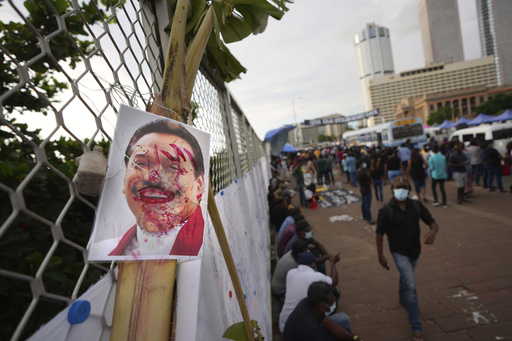In Sri Lanka, the political landscape is undergoing a significant shift as Namal Rajapaksa, the son of former President Mahinda Rajapaksa and the nephew of ousted President Gotabaya Rajapaksa, is running for president. The Rajapaksa family, once a dominant force in Sri Lankan politics, faced turmoil in mid-2022, with members forced into hiding and resigning from government positions amidst public anger over economic woes and corruption allegations.
Namal Rajapaksa, at 38 years old, is positioning himself as an agent of change, attempting to distance himself from the tainted legacy of his family’s political dynasty. The Rajapaksas, known for their influence across various sectors in Sri Lanka, including bureaucracy, courts, and sports, faced severe backlash following the country’s economic crisis in 2022, triggered by unsustainable debt and the impacts of the COVID-19 pandemic.
While Namal Rajapaksa aims to revamp his family’s image and present himself as a modern leader committed to addressing the nation’s challenges, public sentiment in Sri Lanka remains divided. The Tamil community, in particular, holds strong opposition to the Rajapaksas, attributing human rights violations and past grievances to the family’s tenure in power.
Despite some support among segments of the population who credit the Rajapaksas for ending the civil war and driving infrastructure development, including projects funded by Chinese loans, many Sri Lankans express skepticism about the family’s political resurgence. Critics point to concerns of corruption and a history of authoritarian rule, emphasizing the need for a new direction in Sri Lankan governance.
As Sri Lanka gears up for the upcoming presidential election, Namal Rajapaksa’s candidacy symbolizes a pivotal moment for the Rajapaksa political dynasty, marking a test of their enduring influence and the public’s receptiveness to a potential comeback. Whether Namal Rajapaksa can navigate the complexities of Sri Lanka’s political landscape and overcome the shadow of his family’s past remains to be seen, as the nation grapples with economic challenges, social divisions, and demands for accountability.
